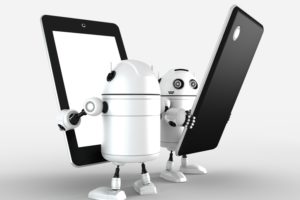Optimizing logistics is being able to detect fraud, composed of art, conducting research, providing translations. Intelligent machine systems have indeed transformed our lives for the better.
Here are few ethical issues in artificial intelligence
1. Unemployment. What happens after the end of jobs?
The hierarchy of labor is rather concerned primarily with automation. One has invented ways to automate jobs and create room for people to assume more complex roles, thus moving from the physical work that used to dominate the pre-industrial globe to the cognitive labor based strategic and administrative work in our present globalized society.
The question that arises is how do we spend our time? Most people still tend to rely on selling their time to have sufficient income to sustain themselves as well as their families
2. Inequality. How do we distribute the wealth created by machines?
Our economic system is indeed based on compensation for contributing to one’s economy that is often assessed making use of an hourly wage. The majority of the companies are still rather dependent on hourly work when it applies to products and services. But by making use of artificial intelligence, a company can indeed drastically cut down on relying on the human workforce, and this also means that revenues will go to fewer people.
3. Humanity. How do machines affect our behavior and interaction?
Artificially intelligent bots are in fact becoming better and better at modeling human conversation as well as relationships.
This is an age whereby one will frequently interact with machines as if they are actually humans, be it customer service or sales. While on one hand humans are limited in the attention and kindness that they can expand on say another person, artificial bots can indeed channel virtually unlimited resources into building relationships.
4. Artificial Stupidity. How can we guard against mistakes?
Intelligence does emanate from learning, whether one is human or machine. Systems tend to usually have a training phase in which they do “learn” to detect the right patterns and also act according to their required input. Once a system is rather fully trained, it can then go into a test phase, whereby it is exposed to more examples and one sees how it performs. Read about Artificial Intelligence Create More Jobs
If one relies on AI to bring us into a new world of labor, security, and efficiency, one needs to ensure that the machine performs as planned and that people cannot actually overpower in order to make use of for their own ends.
5. Racist robots. How do we eliminate AI bias?
Though artificial intelligence is indeed capable of a speed and capacity of processing that is far beyond that of humans, it cannot always be trusted to be fair as well as neutral.
AI systems that are created by humans are conditioned by humans being biased and judgmental.
6. Security. How do we keep AI safe from adversaries?
The more powerful a technology becomes, the more can it be made use of for nefarious reasons as well as good. This also does apply not only to robots that produce to replace human soldiers, or autonomous weapons but also to AI systems that can cause much damage if used maliciously. Cyber-security is important.
7. Evil genius. How does one protect against unintended consequences?
We have to worry about adversaries. Artificial intelligence itself can turn against us?
8. Singularity. How does one stay in control of a complex intelligent system?
Human dominance is on account of ingenuity as well as intelligence. We can get the better of bigger, faster, stronger animals as we can create and make use of tools to control them. This involves both physical tools such as cages and weapons as well as cognitive tools such as training and conditioning.
9. Robot rights. How do we define the humane treatment of AI?
Neuroscientists are still working on unlocking the secrets of conscious experience. One is trying to understand more about the basic mechanisms of reward as well as aversion. We do share these mechanisms with even simple animals. In other words, one is building similar mechanisms of reward and aversion in systems of artificial intelligence.
Artificial intelligence has indeed vast potential.




